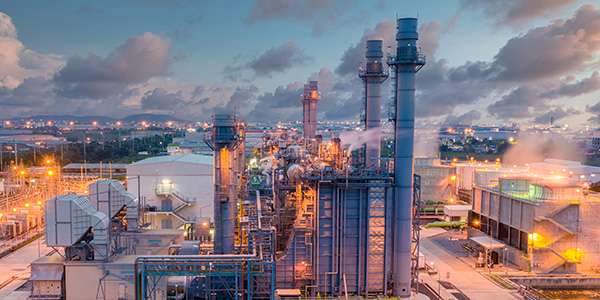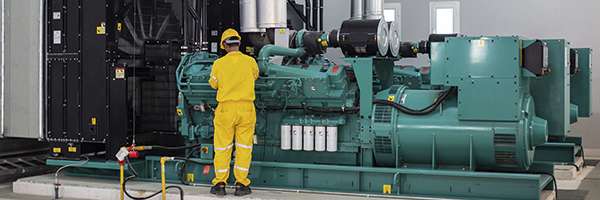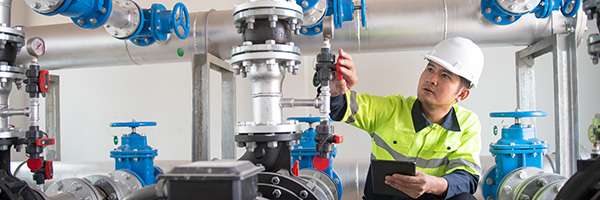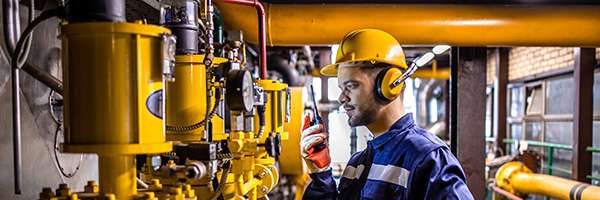Low resistance. High results.
For a start-up, partial flow or full flow condensate polishing in combined cycle plants.
Maximize your equipment reliability and power output while reducing outage times and operational costs. Without adequate combined cycle plant filtration solutions, cleanliness cannot be controlled, and steam/gas systems cannot operate at peak efficiencies due to particle contamination issues causing decreased combustion efficiencies. Combined power plant customers worldwide rely on Pall products to purify water, oils, and gases in every stage of the power cycle.
With a wide range of filter membranes, reverse osmosis, cartridge filtration, and polishing systems, we bring the complete water management solution to combined cycle plants. The result is cleaner combustion, better operation of Nox control systems, protection of the boiler against corrosion, and reduced water usage overall.
Combined Cycle Plants Applications
Fuel gas treatment
Combined Cycle plants use fuel gas that can contain significant levels of contamination levels in the form of solids, gels, water, and salts. Left unchecked, they can hinder operations by increasing maintenance and component replacement costs. Efficient particle filtration and coalescence prevents these harmful contaminants impacting the efficiency and performance of the power cycle.
Heat Recovery Steam Generator (HRSG) water
Pall is an industry leader in HRSG water treatment, utilizing a wide range of ultra and microfiltration membranes, reverse osmosis, and cartridge filtration options to effectively remove contaminants that cause erosive wear, thermal degradation, and acid formation in boiler systems. This enables gas and steam turbines to run at peak efficiencies in combined cycle power plants.
Power to the products
Purifying Water, Oils, and Gases in Every Stage of the Power Cycle.
We are a worldwide leader in fluid purification technologies for the international power generation market. Pall can solve your purification challenges in any size of application, from small flows and simple installations to large flows and complex systems, from the supply of filter elements to fully integrated turnkey systems.
Pall SepraSol™ Plus Liquid/Gas Coalescers remove liquids and solids from fuel streams with high concentrations of unwanted liquids and aerosols. Pall SepraSol Plus media can process several times more liquid per unit area of media than conventional media and often eliminates the need for upstream bulk separation equipment like mist eliminators and vane separators. The SepraSol Plus media is supplied in a large flow, high-performance 6-inch diameter cartridge that can economically treat fuel flows in combined cycle applications requiring a high degree of protection from both solids and liquids. SepraSol Plus Coalescers protect turbines by removing lubrication oil, water, and compressor wear products from effluent fuel streams. Removing liquid aerosols from fuel streams prevents turbines from corrosive wear on their internal blades and on the fuel injection nozzles that supply fuel to the turbine. Pall systems are ideal for adequately cleaning dirty fuel to protect low Nox burners and fuel injection nozzles.
Pall Ultipleat High Flow Filter Systems are large-diameter, coreless, single open-ended, pleated cartridges. This system has a long filter life and is easy to change out. Suspended contaminates are captured in the unique inside to outside filter flow design. The filter's unique crescent-shaped pleat geometry, combined with its large 152.4 mm (6 inches) diameter and proprietary range of available Pall filter media, allows you to use significantly fewer filters and smaller housings for high flow rate applications. Systems can handle up to 115,443 lpm (30,500 gpm).
Pall AccuSep™ Inorganic Membranes, which can be prepared with a mean pore size in the Angstrom range or coarser, are ideal for microfiltration, ultrafiltration, nanofiltration, and gas/gas separation. Because they are produced in a fully automated and high-volume fashion, AccuSep membranes are highly economical to produce. This will allow the industry to adopt inorganic membranes where they were previously considered not cost-effective. A narrow pore size distribution is critical for most membrane separations. The permeability of AccuSep Membranes can be tailored for specific applications. When optimized as a filtration device, an AccuSep Membrane is up to 3 times more permeable than a conventional sintered porous metal medium with a similar removal efficiency. Pall AccuSep filter elements are available in a seamless, tubular format. These sintered metal filter elements are produced by a proprietary process that creates a high void volume, strong, and very uniform medium. This medium is relatively thin, resulting in a structure that is up to three times more permeable than that found in conventional pressed sintered metal tubes.
Our durable filtering products keep exhaust and reused gases within the required operating range to ensure the quality of the process. We offer the largest variety of filter media, element sizes and configurations, and filter grades in the industry. Choosing the best filter element for applications depends mainly on the process conditions, solids loading, gas composition, maximum allowable pressure drop, and the filter medium’s characteristics.
For more information on our contamination solutions for combined cycle power plants, click here to see purchase information or to talk to a Pall expert.
COMBINED CYCLE PLANTS
For more information about our range of products, explore our product catalog.










